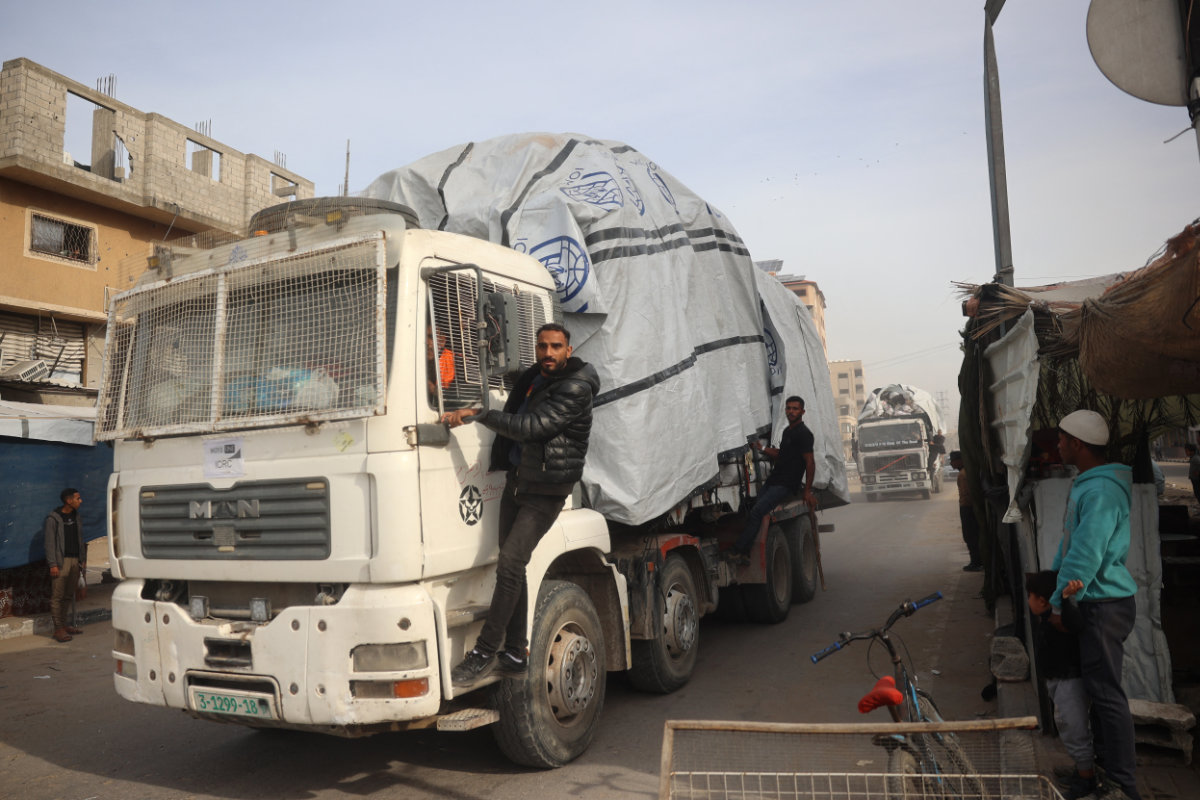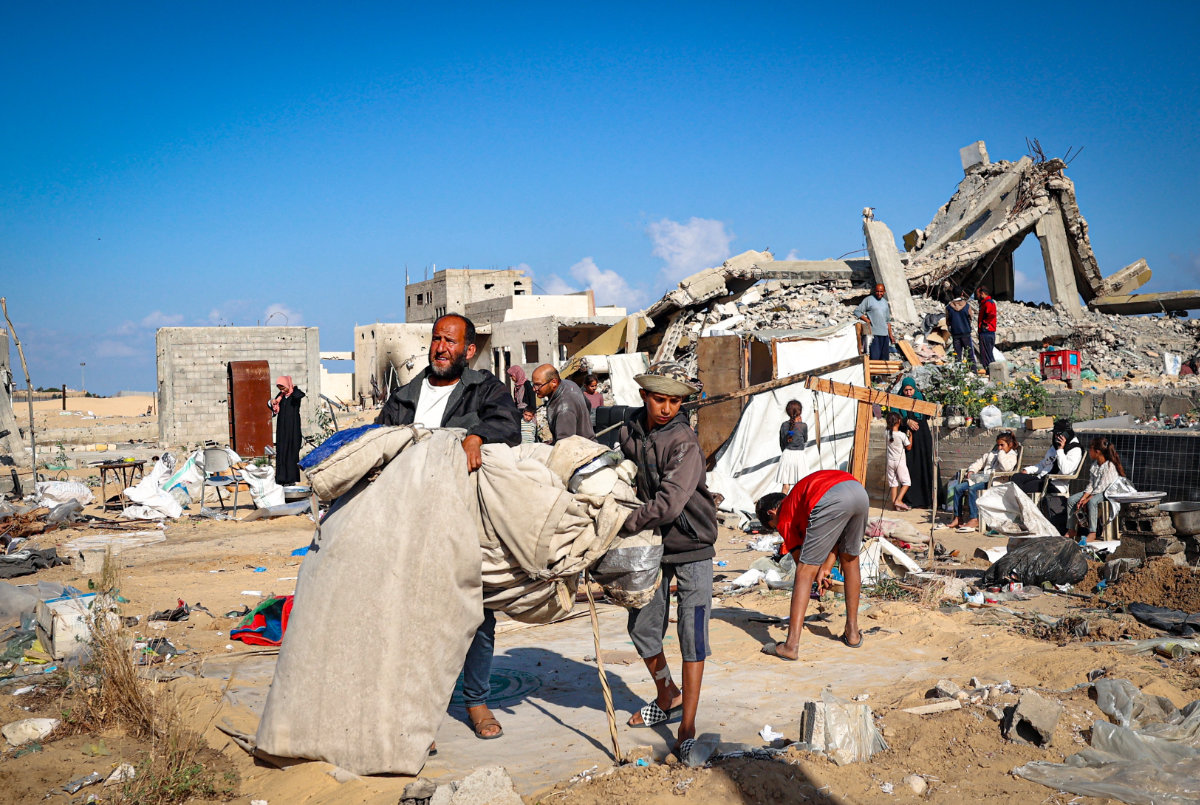ALGIERS, Algeria: After being declared the winner of Algeria’s election, President Abdelmadjid Tebboune joined his two challengers in criticizing the country’s election authority for announcing results that contradicted earlier turnout figures and local tallies.
The claims of irregularities mar what had earlier appeared to be a landslide victory for the 78-year-old head of state.
The country’s independent election authority on Sunday announced that Tebboune had won 94.7 percent of Saturday’s vote, far outpacing his challengers Islamist Abdelali Hassani Cherif, who received only 3.2 percent and socialist Youcef Aouchiche, who got just 2.2 percent.
Hours later, Tebboune joined his opponents in questioning the reported results with the three campaigns jointly issuing a statement accusing the country’s election chairman of announcing contradictory results.
In a country where elections have historically been carefully choreographed affairs, such astonishing questions about irregularities shocked Algerians who expected Tebboune to win in a relatively uneventful fashion.
It’s unclear what will follow all three candidates casting doubt on irregularities and whether they will prompt legal challenges or delay the final certification of the result.
The tally reported on Sunday gave Tebboune a total vote share that was far more than the 87 percent that Vladimir Putin won in Russia’s March elections and the 92 percent that Ilham Aliyev got in Azerbaijan’s February contest.
But efforts from Tebboune and members of his government to encourage voter turnout to project legitimacy appeared to have fallen short, with less than one out of every four voters participating.
Election officials on Sunday reported 5.6 million of the country’s roughly 24 million voters had turned out to vote. Such high abstention rates, which remain unofficial, would surpass the 2019 presidential election when 39.9 percent of the electorate participated.
Officials did not explain why they had earlier announced 48 percent voter turnout at the time of polls closing. Before the three candidates joined in questioning the discrepancy, both of Tebboune’s challengers raised questions about it, citing their own tallies.
Aouchiche called it “strange.” Ahmed Sadok, Cherif’s campaign manager, blasted delays and the way the figure was calculated.
“It’s a shame. It’s an attack on the image of Algeria, which will become the laughing stock of nations,” Sadok said earlier in the day.
He also said there had been a failure to deliver vote-sorting records to the candidates’ representatives and that said the party had recorded instances of proxy group voting and pressure put on poll workers to inflate certain figures.
Claims of irregularities cap off an election season that outraged activists and civil society groups. Human rights advocates railed against the campaign season’s repressive atmosphere and the harassment and prosecutions of those involved in opposition parties, media organizations and civil society groups.
Some denounced this election as a rubber stamp exercise that can only entrench the status quo. Amnesty International last week condemned Algeria’s “brutal crackdown on human rights including the rights to freedom of expression, peaceful assembly and association in the run up to the country’s presidential elections.”
Before the candidates questioned the results, Tebboune’s supporters and detractors each had drawn conclusions from the results.
Pro-Tebboune university professor Abdellaoui Djazouli said on public television that the result was a resounding endorsement of Tebboune’s program.
“The president has more legitimacy to continue his action to better establish his project for the new Algeria,” he said on public television.
But his runaway victory fueled criticism from pro-democracy activists who have long seen elections as tools that the country’s political elites have used to give off an appearance of popular support.
Many said the loudest message to come out of the election came from those who chose to abstain out of fear that the election would only entrench and legitimize “le pouvoir” — a term used to describe the military-backed elites who run the country.
“The vast majority of the Algerian people have just given ‘le pouvoir’ a lesson in democracy,” said Nassira Amour, a teacher and leading figure from Algeria’s pro-democracy movement.
“The majority did not vote ... This electoral masquerade is a victory for the Hirak,” Amour added, referencing the pro-democracy movement that swept the country in 2019.
That year, after Hirak protesters flooded the streets of Algerian cities, the military ousted President Abdelaziz Bouteflika after two decades in power. The interim government that replaced him heeded calls from military leaders to hold elections later that year, angering protesters who saw expediting elections as a way to calm discontent and sidestep demands for civilian-led, non-military rule.
Tebboune, considered the military’s candidate, won his first-term in a widely boycotted election during which crowds sacked voting stations and police broke up demonstrations. Despite his early overtures and pledges to listen and usher in a “New Algeria,” Hirak protesters continued weekly demonstrations demanding deeper reforms.
Algeria is Africa’s largest country by area and, with almost 45 million people, it’s the continent’s second most populous after South Africa to hold presidential elections in 2024 — a year in which more than 50 elections are being held worldwide, encompassing more than half the world’s population.
































